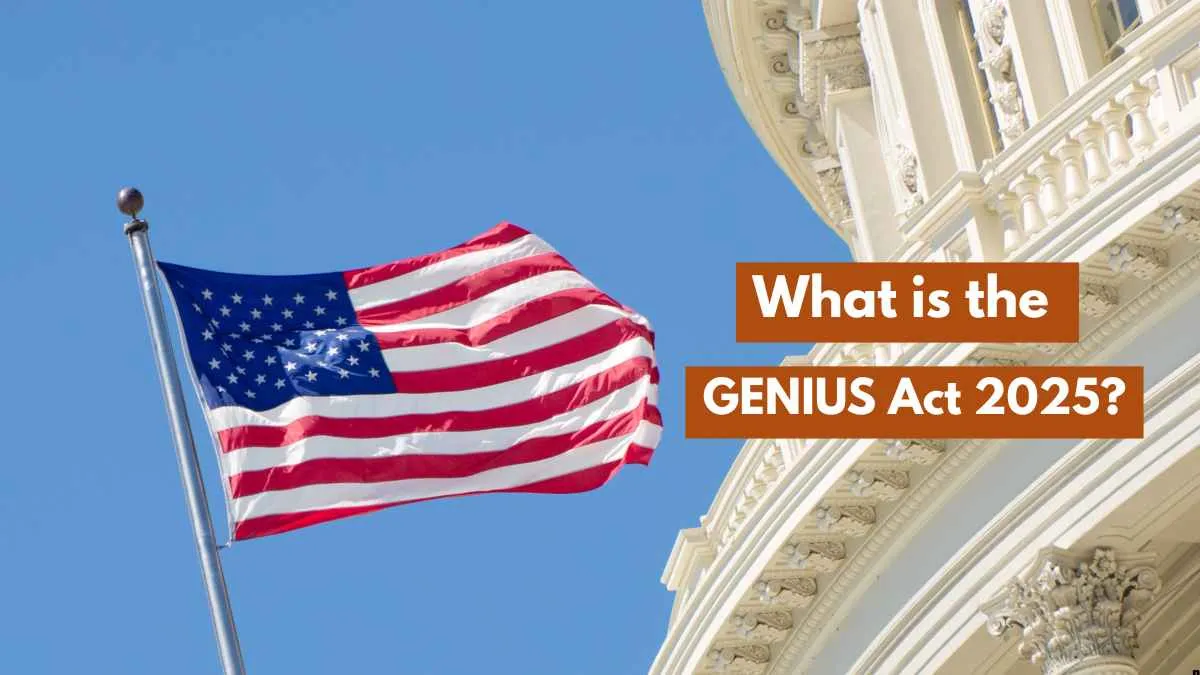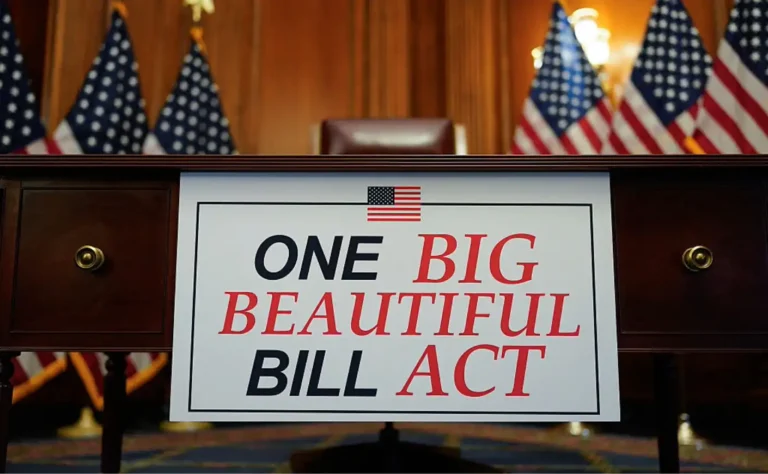New Changes to the GENIUS Act Bill 2025 Explained

Meta Description: Discover the fresh amendments to the GENIUS Act (2025), why they matter for stablecoin issuers, consumers, and global crypto. Understand reserve rules, state vs federal oversight, timeline updates, and what it means for fintech innovation.
🔍 What Is the GENIUS Act?
The GENIUS Act (Guiding and Establishing National Innovation for U.S. Stablecoins Act) is transformative 2025 U.S. federal legislation that creates a robust regulatory framework for payment stablecoins—cryptocurrencies pegged to the U.S. dollar 🇺🇸 youtube.com+1abcnews.go.com+1CBS News+15en.wikipedia.org+15Gibson Dunn+15.
It requires:
- Full-reserve backing with cash or Treasuries
- Monthly audited disclosures
- A dual federal-state supervisory model
- AML, consumer protections, and bankruptcy safeguards Pillsbury LawMayer Brown+6Gibson Dunn+6Pillsbury Law+6
🔧 New Amendments & Key Changes (2025 Updates)
1. 🌐 State Certification Process
- States wanting to regulate stablecoin issuers must now gain formal certification by the Stablecoin Certification Review Committee (SCRC).
- Those with existing digital-asset rules get an expedited 180‑day timeline to earn approval Pillsbury Law+2Mayer Brown+2Morgan Lewis+2.
2. 🏢 Non-Financial Entities Banned
- Public non-financial companies (and their foreign equivalents) are prohibited from issuing stablecoins, unless SCRC grants unanimous exemption Mayer Brown+1Morgan Lewis+1.
3. 🏦 Bank Master Account Clarification
- The “Hagerty Amendment” confirms that the GENIUS Act does not alter a firm’s eligibility for Federal Reserve master account access Mayer Brown.
4. 👥 AML & Insolvency Protections
- Requires robust anti-money laundering (AML) systems under the Bank Secrecy Act.
- In case of issuer/custodian failure, stablecoin holders have priority in bankruptcy—reserved assets are excluded from the debtor’s estate Mayer Brown.
5. 🌎 Foreign Issuer Oversight
- Foreign entities must meet U.S.-equivalent regulations to be exempt from local licensing.
- If a jurisdiction’s rules are no longer comparable, the Treasury can rescind the exemption Mayer Brown+1Gibson Dunn+1.
6. ⏰ Realistic Implementation Timeline
- The Act becomes effective when regulators issue final rules, or 18 months after signing—whichever is soonest.
- Issuer obligations phase in over one to three years, with transaction prohibitions delayed until 2028 Morgan LewisGibson Dunn.
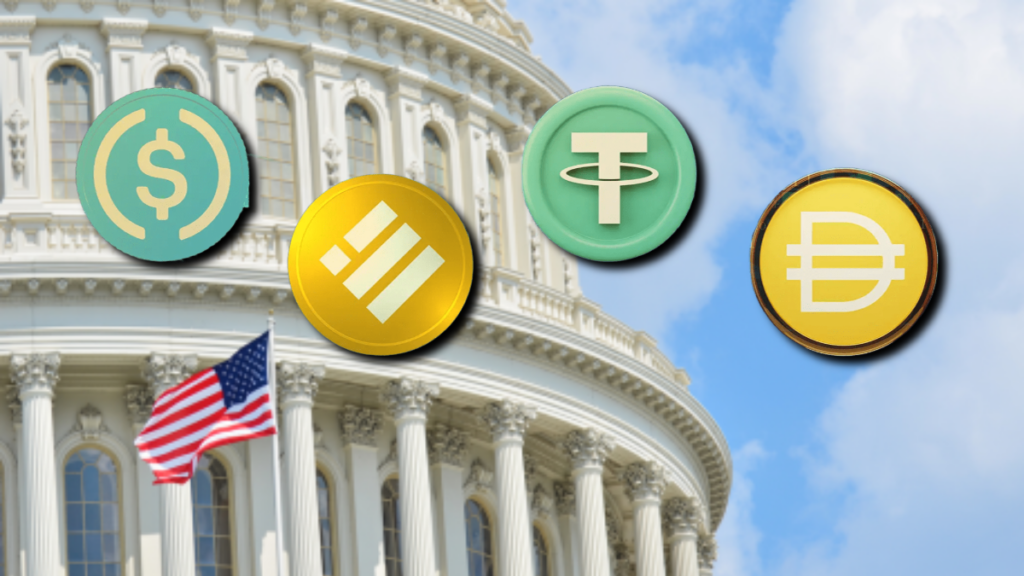
🏛 Why These Changes Matter
✅ Consumer Protection & Clarity
- Exclusive stablecoin issuance rights for vetted institutions mean safer assets for consumers.
- Clear AML and insolvency rules build trust and stability.
🏢 Institutional Adoption
- Big banks (JPMorgan, BofA) and retailers (Amazon, Walmart) can now explore stablecoins under a transparent legal regime Morgan Lewis+2Mayer Brown+2MarketWatch+2.
⚖️ State-Federal Cooperation
- State-level regulation gains legitimacy under federal guidelines, giving local innovation space while maintaining national consistency.
🌍 Global Impact
- Non-U.S. issuers need to meet U.S. standards to operate domestically—affecting major stablecoins like Tether and USDC if they target U.S. customers.
🎯 What’s Next: Regulatory Rollout & Industry Move
| Timeline | What Happens |
|---|---|
| 180 days post-enactment | Treasury, OCC, Fed, state regulators draft rulebooks |
| 1 year | States must apply to SCRC for certification |
| 18 months | Bill becomes fully active |
| By July 2028 | Issuer restrictions kick in—non-permitted providers barred from U.S. markets |
Issuers should initiate applications early, especially those with existing stablecoins, to maintain a legal foothold. apnews.com+3Morgan Lewis+3Mayer Brown+3
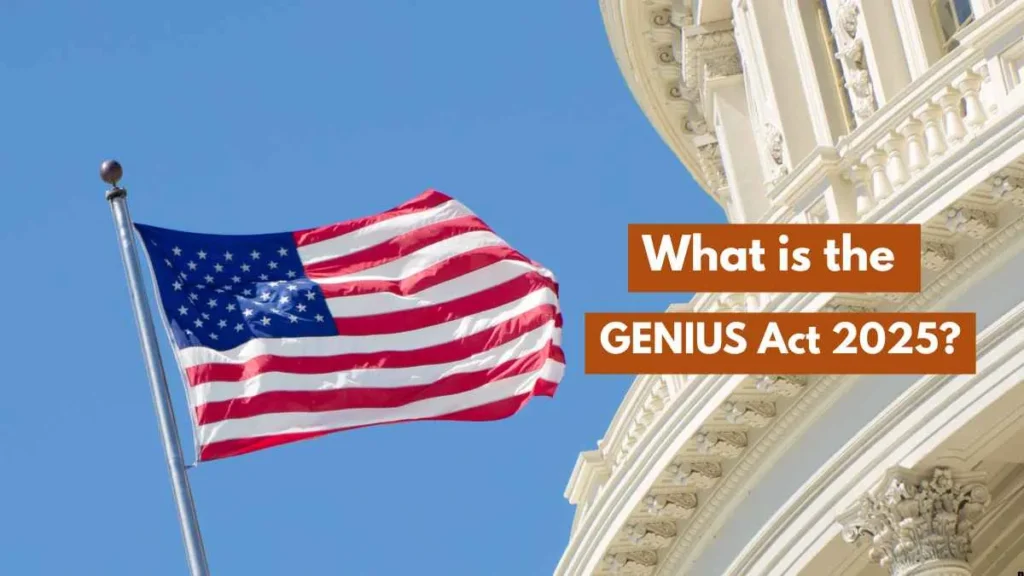
⏳ Why Implementation Phases Are Gradual
- 🏛 Time to draft regulations
- 🏗 AML & compliance systems require integration
- ⚖️ States need time to align existing laws
- 💼 Existing stablecoin adopters must adjust operations
This staggered phase-in ensures smoother transition, avoiding disruption.
📈 Impacts on the Crypto Ecosystem
For Consumers
- Access to safer, regulated stablecoins
- Greater transparency in backing and redemption rights
For Institutions
- Banks, fintechs, and retailers can issue stablecoins under federal licenses
- Potential transaction cost savings (2–3%) by bypassing card networks Business Insider
For Crypto Markets
- Stronger stablecoin backing could boost market capitalization—already up 4T+ USD after the Act passed New York PostMarketWatch
For Emerging Platforms
- New compliance-demanding landscape may reshape tools, wallets, and DeFi services
⚠️ Critics’ Concerns
- Big-tech lock-in if public companies gain stablecoin power
- Potential erosion of consumer privacy under AML surveillance
- Complaints that it may stifle innovation and reduce competition Mayer Brown
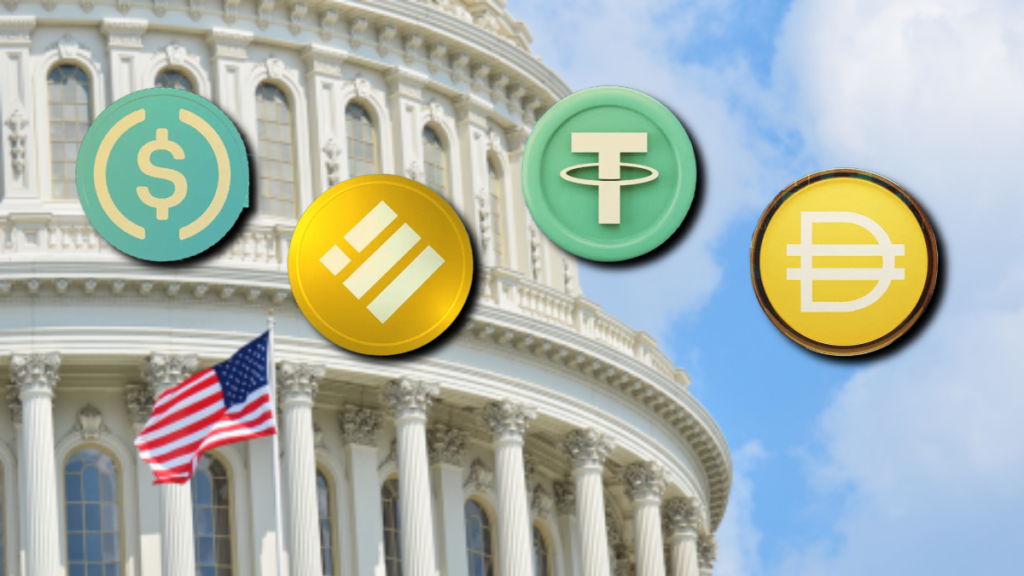
🔍 Bottom Line: The GENIUS Act in 2025
The GENIUS Act updates add clarity, structure, and security to the emerging stablecoin ecosystem. Its phased roll-out timeline gives issuers and regulators time to adapt, while the amendments offer:
- Stronger consumer rights
- Dual oversight via federal and state
- Clear compliance pathways for domestic and foreign players
FAQs on the GENIUS Act in 2025: What Crypto Investors Must Know
Meta Description: The GENIUS Act 2025 is reshaping crypto regulations in the U.S. Get answers to the most asked questions about its scope, impact, and benefits for investors and startups.
❓What is the GENIUS Act 2025?
The GENIUS Act stands for “Generating Evolving and New Innovations for the United States”. Passed in 2025, it is a comprehensive federal legislation designed to regulate the cryptocurrency, stablecoin, and blockchain ecosystem in the U.S., promoting innovation while protecting consumers.
❓Why was the GENIUS Act introduced?
The act was introduced to:
- Establish clear guidelines for crypto firms and exchanges
- Regulate stablecoins and digital assets
- Prevent fraud, rug pulls, and scams
- Encourage crypto startups and foreign talent to build in the U.S.
- Compete with global crypto hubs like UAE, Singapore, and Switzerland
❓Does the GENIUS Act legalize crypto in the U.S.?
Yes. While crypto wasn’t illegal before, the GENIUS Act now provides legal clarity for developers, exchanges, and investors—legitimizing crypto as an asset class and removing the legal gray area.
❓How does it affect stablecoins?
The GENIUS Act:
- Mandates that all U.S.-issued stablecoins be backed 1:1 with fiat reserves
- Requires monthly audits of reserves
- Authorizes only regulated institutions (banks or licensed entities) to issue them
This enhances trust and transparency, especially for coins like USDC, PYUSD, and other government-compliant tokens.
❓What are the KYC/AML requirements under the GENIUS Act?
The act makes Know Your Customer (KYC) and Anti-Money Laundering (AML) processes mandatory for:
- Centralized exchanges
- Stablecoin issuers
- On-ramp/off-ramp providers
DeFi protocols that reach a certain size may also be subject to light-touch regulation and reporting.
❓Does the GENIUS Act regulate NFTs?
Yes, but only under specific conditions. NFTs are not considered securities unless fractionalized or sold as investment contracts. NFT platforms may be required to comply with:
- AML rules
- Royalty transparency
- Tax reporting
❓Will the GENIUS Act affect crypto taxes?
Yes. The GENIUS Act works in coordination with the IRS crypto tax policy, requiring:
- Reporting of crypto gains/losses
- Exchanges to issue 1099-DA forms to U.S. taxpayers
- Clearer classification of crypto (commodity, security, or utility token)
❓What protections does the Act offer to retail investors?
- Disclosure norms for new tokens
- Mandatory risk warnings
- Fund segregation for customer deposits on exchanges
- Insurance-like protections for custodial platforms
This makes crypto investing safer for beginners.
❓Is the GENIUS Act only for U.S. companies?
No. It also affects:
- Foreign exchanges operating in the U.S.
- Cross-border crypto payments
- Startups seeking U.S. market entry
It’s one of the first steps toward global regulatory coordination on crypto standards.
❓Does the GENIUS Act support crypto startups and innovators?
Absolutely. The Act:
- Introduces a regulatory sandbox for early-stage crypto projects
- Offers tax incentives for blockchain R&D
- Encourages foreign tech talent through the new GENIUS Visa
❓What is the GENIUS Visa?
The GENIUS Visa is a special immigration track under the Act that fast-tracks residency for:
- Blockchain developers
- Crypto founders
- AI innovators
- Quantum tech entrepreneurs
It’s designed to attract global Web3 talent to the U.S.
❓When did the GENIUS Act come into effect?
The act was signed into law in March 2025 and came into effect from July 1, 2025. Enforcement of certain provisions (like stablecoin audits) is being phased in over the year.
❓How does it compare to other laws like MiCA or India’s Digital Asset Bill?
| Regulation | Country | Focus |
|---|---|---|
| GENIUS Act | United States | Crypto, stablecoins, investor safety |
| MiCA | European Union | Crypto asset licensing and utility |
| Digital Asset Bill | India | Tax, compliance, global oversight |
GENIUS is more startup-friendly and visa-integrated, setting the U.S. up as a competitive crypto hub.
✅ Final Thoughts
The GENIUS Act 2025 marks a pivotal shift in crypto regulation. It brings clarity, security, and legitimacy to an industry that has long operated in legal uncertainty. Whether you’re an investor, developer, or startup founder, understanding this Act is essential for navigating crypto in the US
